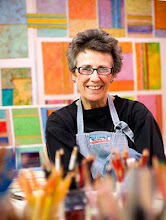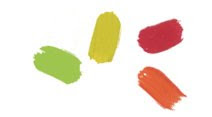A note from my nephew, Lorenzo, (The Alchemist's Pillow) caused me to think about what it is in us that resists change. It came to me that change brings a sense of loss.
Early on we form a picture of the world around us. The new experience that doesn’t conform to our perceived reality might mean forfeiting it. Readjusting the picture is usually unsettling, often disturbing, and at its worst, painful.
When we thought the earth was flat it was hard to conceive of taking a tour of the circumference without falling off. That was a hard one. I call to mind often the almost ninety years of my father’s life, begun on the cobblestone streets of Brooklyn, where his knee was injured when he was run over by a horse drawn wagon. He seemed to welcome the changes in his time and at the same time loved his history. Then I had an artist friend who died at 93; he railed against present day scientific knowledge after serving in World War Two. He saw advances in technology as destructive of life. It served no purpose to remind him that his life had been saved by modern medicine after a diagnosis of an aggressive form of cancer.
I have often wished I had never seen a painting so that I could envision something totally free of any notion of what a painting is and “should” look like. I find my self sometimes looking at something I have produced and asking: “Is this a painting?” Of course, in truth, I would not be a painter if I had never seen a painting. How then would I have known what I wanted to do?
To add your thoughts to mine, please use the comments area below. I am always interested in anyone's take on my ruminations.
The image above is Charity ©2010 Acrylic Collage Painting 17" x 11". For information or to purchase any of the paintings on this site, please email Joan.
Subscribe to:
Post Comments (Atom)














Isn't it funny that you have to rid your mind of preconceptions about painting to paint, but when you're done you must ask if it is a painting? And then, what is a painting? And that category has expanded so much in the last 150 years or so. What you wrote cracks open the door to a new perspective on it by stepping back to think how we experience and perceive. I wonder about the ground-breaking artists whose work changed what we believe is art, but wasn't during their own time considered art, how they felt about that work. Did they ask themselves if it was a painting when a piece was done? And did they not require its ability to communicate to others (at least during their time)to know it was successful? I love mulling over what you write and continue to think about it as I work.
ReplyDeleteThank you for your thoughts, Regina.
ReplyDeleteI think some questions are best left as questions because the answers will always, somehow, be smaller than the questions.